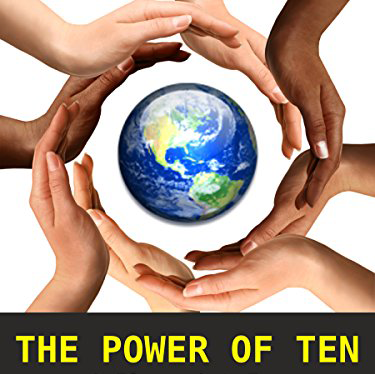Stories
Eight hundred and fifty words
My daughter is always kind enough to edit my literary doodles. She invariably grumbles about me using too many words; my texts are too long. People no longer have time nor the inclination to take in more than 850 words at a time. Weird really; society gets more complex and consequences of our decisions more important but we are less and less willing to study things in detail. That cannot have a positive impact on the quality of our decisions.
I think I am going to contribute to solving this conundrum by ceasing involvement in any pointless debate. My involvement in societal discourse is my book, the Power of Ten, that could most certainly be a sensible contribution. I hope that many more people would be prepared to read it. It may not a very well written book, but it does contain very valuable original thoughts and ideas about today’s society and its future.
I wrote this column to get more attention for the book. That is a task of substantial proportions. I will have to follow different approaches to achieve that. It is difficult to speak with authority about unproven and divergent ideas, but I definitely can recommend reading the book. In English it is an eBook available through a number of different sellers, but let’s get back to the quality of our decisions in today’s society.
The greatest threat for any good decision is a lack of foundation in society, caused by the dissociation that is getting more manifest by the day. Decisions usually come from governments that operate at an ever-greater distance from the individual citizen or from the wealthy, the owners of the investment funds and conglomerates. Funds that have one mission only and that is to manage the risk and the potential of its capital, whatever the means; dissociated from human interest. Decisions taken with wrong goals: to secure the power of the government and to increase the capital of the wealthy.
The middle class dances to the tunes of government and capital. That is where they derive their status and well-being from. Fear for loss of position will always diminish their empowered and independent standing. Sacrifice of an individual (like a whistle blower) is usually futile in relation to the unstoppable train of power; the short-sighted power mongers. Long-term thought is very difficult to justify for people whose future is determined in the short term. They can be successful because they understand what is relevant today and how to respond to that to maintain a string position for tomorrow. The middle class serves those in power as their managers. That is how they achieve above mentioned status and well-being. In an ever-increasing complexity of the world, the powers that be try to make the world more uniform, realise some benefits of scale in society. They need managers to do that: the middle class. They are not rewarded for their contribution to the societal discourse, but for their management of those guidelines that have been established over their heads. That really should be turned upside down.
We manage the wrong interests, the extremely well-being of the few. We should manage to create a better world for all. The stakeholders in a better environment are the planet and all its inhabitants; now and in the future. Their interests are not represented by the happy few, but should be the responsibility of the collective. A collective that lives in appreciation and respect for the diversity that is the make up of our society and that is prepared to cherish the corresponding complexity.
That doesn’t mean we have to accept all complexity as such! We can also reduce complexity by doing away with the less meaningful excesses like in the overly complex world of finance. We should put a stop to the ever increasing conglomeration of the business world which would give the extra bonus of staying away from the ‘too large to control; too large to fail’ conundrum.
We have to find ways that call a halt to the ever-increasing dissociation between rulers and people; the dissociation between 5% and the 95% of the people that depend on them. That has consequences for the decision-making processes. Now the rich decide and call on their vassals to carry out their decision by enforcing them on the people, basically no better than serfs of the economy. Without time for deeply evaluated thought and without great empathy for the working class dictates are called upon society. People, the managers, become uniform executors and are not respected as specialists in their field. That leads to sub optimisation of horrendous proportions.
If we could strengthen the position of the middle classes by making them operate with a strong mandate from the general population, humanity would be able to benefit much better from its assembled talent. That would be good for decision making and ultimately even for the rulers and the elite. If the middle classes would operate based on such a popular mandate and not coerced by the dictate of the wealthy and if another element could be added to the equation money equals power a better-balanced society would ensue. That could call a halt to the increasing chasm between the rich and the poor and would lead to a more constructive discourse where elements like sustainability and justice could really find their place in society.
A system like the Power of Ten will give the people a much better chance not only to be heard but also to be taken serious. The middle class will still be important as the spokespersons, but they will have power thanks to the popular supported mandate. That mandate will be dear to them and will guarantee a bridge across the interests of society, giving it true support.



